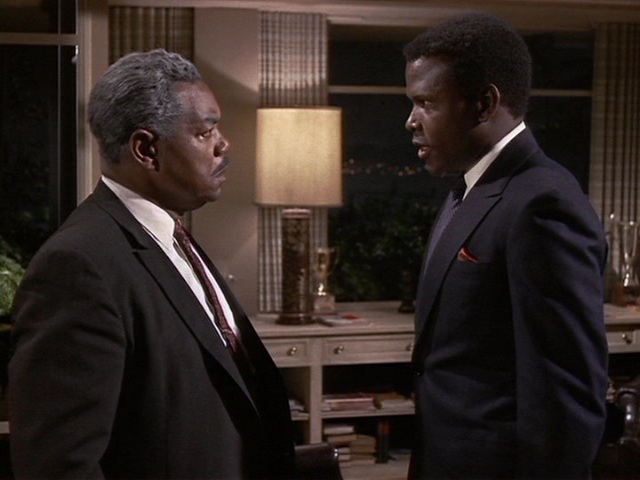
To be honest, I’ve always had a problem with authority. As I teenager, I was insistent that respect must be earned, not taken for granted; and boy did I make earning my respect hard back then. (My belated apologies to all parents, teachers, youth leader, and so on.)
Since moving out of my adolescent phase, though, I have tried to grant everyone respect by default. It is discourtesy and contempt that should have to be earned, not respect. But respect does not equate with deference. I may respect your opinion, I may cherish you as an elder, but that does not mean I will defer to your judgment. While I try to express my respect for the experience of those who are older than me, I have little patience for those who invoke their age in an attempt to claim deference to their judgment.
It seems I have this problem most with people who are around my parents’ age. As I get older, the age of the people I have this problem with moves up as well. When I was in my 20s, it was people in their 40s and 50s that most grated on my nerves. Now that I’m almost 40, it’s people (mostly men) in their 60s and 70s. It’s possible that there’s something about the Boomer Generation’s attitude toward authority, or I have unresolved parental issues, or both.
In any case, I remain deaf to appeals to the authority of one’s chronological age. One reason is because I don’t see much of a correlation between chronological age and wisdom. I know some people in their 20s and 30s whose inherent wisdom and life experience make me feel as naive as an infant. And I know people twice my age that act like infants — especially when their ideas are challenged. In addition, it seems to me that people, of any age, who are wise, have no need to claim the authority of years. Their wisdom speaks for itself, through their words, their acts, and their demeanor. While people who invoke their chronological age to compel compliance often have little else to recommend them. Sometimes the people who claim ageism are guilty of a kind of reverse ageism themselves, displaying disrespect for all those younger than them. Ageism — discrimination against the aged — is a real phenomena , which I do not intend to downplay by my comments here. But it does everyone a disservice to conflate ageism with the mere refusal to kowtow to every word that comes out of the mouth of an elder.
Those, of every generation, who invoke the authority of their age and cry “ageism” when no one listens seem to be cut from a common mold. They are comfortable with the status quo, and they fear that the times they are a changin’. These would-be elders claim to define our future by appeals to the past. No doubt, there is a critical role for tradition, for structure and institutions. They act as a bulwark against chaos, both social and personal. And our elders are the guardians of that bulwark. But bulwarks can become obstacles. And unless the structures of the old generation are vivified by the energies of the new, then they stagnate. I think it is the job of the older generation to act as a kind of governor on the throttle, against the lead-foot pressure of younger generation. But the older generation does not gradually lessen — and ultimately remove — that restraining force, then the whole thing stalls.

I’ll be turning 40 this year, and I feel caught between these two forces — both despising and clinging to the ideas of the first generations of Neo-Pagans, while both fearing and thirsting for the ideas of the newest generation of Pagans. How to relate to these two generations is the question. I’m reminded of a scene from the 1967 film, Guess Who’s Coming to Dinner, starring Sidney Poitier, Katharine Hepburn, and Spencer Tracy. Poitier plays a young black doctor, John Prentice, whose white fiancee brings him home to meet her white parents. The meeting is later joined by the black parents of Poitier’s character, John. There is a scene where John’s father, a retired mailman, pulls him aside and tries to dissuade him from marrying a white girl. When John refuses to listen, his father appeals to his age and John’s obligations to his parents. While John’s response is unnecessarily disrespectful, I think, something he says about the obligations of one generation to the next has stuck with me.
Mr. Prentice: Son, you’ve got to listen to me. I’m not trying to tell you how to live your life, but you’ve never made a mistake like this before. … Y’know, for a man who all his life never put a wrong foot anywhere, you’re way out of line, boy!
John: That’s for me to decide, man. So just shut up and let me—
Mr. Prentice: You don’t say that to me! You haven’t got the right to ever say a thing like that to me. Not after what I’ve been to you! And you know that, and I know that. Yeah, I know what you are and what you’ve made of yourself. But I worked my ass off to get the money to buy you all the chances you had! You know how far I carried that bag in 30 years? 75,000 miles. And mowin’ lawns in the dark so you wouldn’t have to be stokin’ furnaces and could bear down on the books. I’ll tell you, there were things your mother should have had that she insisted go for you. And I don’t mean fancy things. I mean a decent coat. A lousy coat! And you’re gonna tell me that means nothin’ to you. And you could break your mother’s heart?
[…]
John: You’ve said what you had to say. You listen to me. You say you don’t want to tell me how to live my life? What do you think you’ve been doing? You tell me what rights I’ve got or haven’t got and what I owe to you for what you’ve done for me. Let me tell you something. I owe you nothing. If you carried that bag a million miles, you did what you were supposed to do. Because you brought me into this world and from that day you owed me everything you could ever do for me, like I will owe my son, if I ever have another. But you don’t own me. You can’t tell me when or where I’m out of line or try to get me to live my life according to your rules. You don’t even know what I am, Dad. You don’t know who l am, how I feel, what I think. And if I tried to explain it the rest of your life, you would never understand. You are years older than I am. You and your whole lousy generation believes the way it was for you is the way it’s got to be! And not until your whole generation has Iain down and died will the deadweight of you be off our backs! You understand? You’ve got to get off my back. Dad. You’re my father. I’m your son. I love you. I always have and I always will. But you think of yourself as a colored man. I think of myself as a man. …
This idea, that generational obligations flow downward, has stuck with me as I have had children and watched them grow into teenagers, watched them grow beyond the limited scope of my vision for them. I think it must be this way, each generation wearing itself out in service to the next, each new generation climbing over the last to reach new vistas. We fathers and mother, leaders and elders, have to do this, have to sacrifice ourselves, knowing that we likely will not see the gratitude or appreciation that we deserve. We have to do this knowing that our joy must be found in seeing the next generation thrive, even as we decline. Watching the ideas of the new generation surpass our comprehension, even as the institutions we cherished crumble. It must be this way, or else we as a people get stuck. This is perhaps the enduring legacy of the Enlightenment, which despite its limitations and failures, showed the human race the way out of the perpetual cycle of the slavish worship of tradition. And we Pagans are children of the Enlightenment, as surely as we are children of the Romantics.
I am a Neo-Pagan, which means that I honor and cherish the past. But it also means that I recognize that Change is the one ever-present reality. As surely as one season follows the next, as surely as the King of the Old Year is sacrificed at the height of his power by the Child of the New Year — sacrificed by his own son — just as surely, we must each, when our own time is come, bow our heads to the succeeding generation, in honor of that Life which encompasses all, even death.
So the next time some Pagan elder is demanding I defer to their judgment about my Paganism, I think I will just turn away, turn to someone younger than me, and ask myself what I have done to help the next generation of Pagans thrive.











